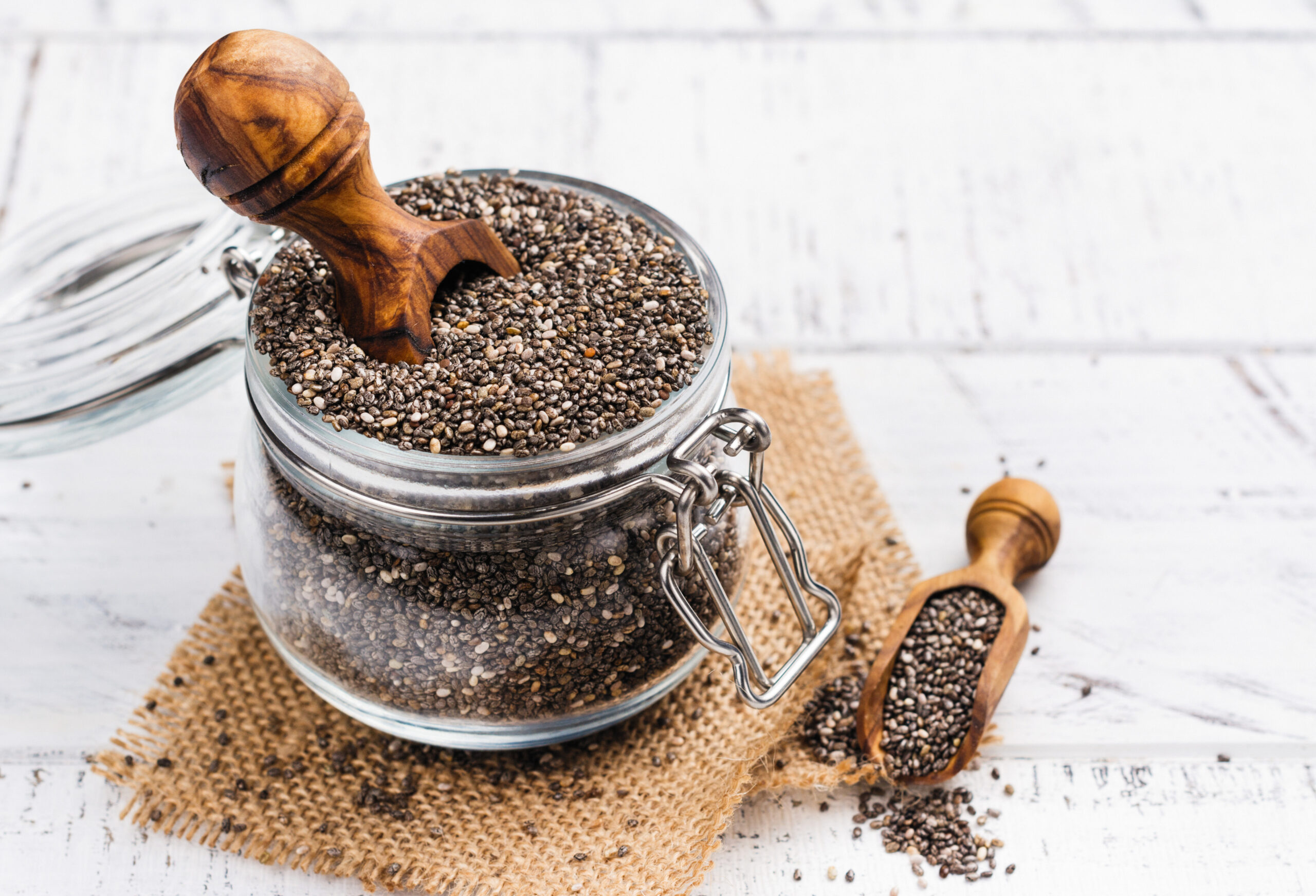Priya
M.Sc Nutrition and Dietetics
Have you ever wondered how these tiny little seeds can benefit our health in such a great manner!!!
Having a balanced diet is really important for our health. One of the best ways to get the necessary nutrition from our diet is to consume seeds and nuts. Health experts recommend that we consume one handful of seeds daily for their health benefits. As people are becoming more health conscious, the spotlight on seeds and nuts is getting pretty high. Seeds and nuts are a nutritious, whole food source of protein, vitamins, minerals and antioxidants. They contain unsaturated fats that help to lower cholesterol and can help to improve your heart health. They are also high in fiber and are a great way to help keep you feeling full for longer.
Flaxseeds are one of the most underrated superfoods on the planet. These tiny seeds are packed with a variety of nutrients that make them a powerful weapon against serious diseases. These are a rich source of dietary fiber that helps in reducing cholesterol and blood sugar levels. Flaxseeds also contain lignans, which are phytoestrogens that provide antioxidant, anti-inflammatory and anticancer benefits.
The star component
Flaxseed offers a variety of health benefits when consumed on a regular basis. An ounce of flaxseed contains 70 calories. It is rich in fiber and contains eight grams of dietary fiber in one ounce. The seeds also contain high levels of omega-3 fatty acids, which are essential fatty acids that are required in the diet.
Flax seeds are commonly found in almost every health bar and convenience food pack. Despite the fact that flaxseed is full of beneficial nutrients, the following star constituents are the ones that give it its most favourable health reputation:
- Alpha – linolenic acid (ALA)
- Lignans
- Fibre
Nutrients Amount per 100 g of edible flaxseed
| Moisture (g) | 6.5 6.5 |
| Protein (N×6.25)(g) | 20.3 |
| Fat (g) | 37.1 |
| Minerals (g) | 2.4 |
| Crude fibre (g) | 4.8 |
| Total dietary fibre (g) | 24.5 |
| Carbohydrates (g) | 28.9 |
| Energy (kcal) | 530.0 |
| Potassium | 750.0 |
| Calcium (mg) | 170.0 |
| Phosphorous (mg) | 370.0 |
| Iron (mg) | 2.7 |
| Vitamin A (µg) | 30.0 |
| Vitamin E (mg) | 0.6 |
| Thiamine (B1) (mg) | 0.23 |
| Riboflavin (B2) (mg) | 0.07 |
| Niacin (mg) | 1.0 |
| Pyridoxine (mg) | 0.61 |
| Pantothenic acid | 0.57 |
| Biotin (µg) | 0.6 |
| Folic acid (µg) | 112 |
*Morris 2007; Gopalan et al., 2004; Payne, 2000
Ala
Alpha-linolenic acid is the main functional component of flaxseed. It serves as an exclusive source of omega-3 fatty acid in vegetarian diets. Fatty acids are termed as essential because they are required by the body but body cannot synthesise them, therefore need to be supplied in the diet.
There are two groups of omega fats: omega-3 and omega-6 fatty acids. All three fatty acids have been shown to reduce the risk of cardiovascular disease.
ALA from flaxseed exerts a positive effect on blood lipids. It was found to be as effective as oleic acid and linoleic acid in the reduction of plasma total cholesterol, low density lipoprotein cholesterol and very low density lipoprotein cholesterol.
Lignans
Fibres
Flaxseed contains soluble and insoluble dietary fibres in a proportion that varies between 20:80 and 40:60. Dietary fibres from flaxseed were found to have a direct relation to health in particular in body weight regulation through both hunger suppression and diminished nutrient absorption.
Protein
The protein content in flaxseed has been reported to between 10.5% and 31%. Albumin and globulin type proteins are the major proteins in flaxseed. Flaxseed albumin comprised 20% of meal protein.
Flaxseed protein was effective in lowering plasma cholesterol and triglycerides (TAG) compared to soy protein and casein protein.
Properties of Flax seeds
- Antioxidant
- Anti-inflammatory agent,
- Anti-hyperglycemic
- Anti-arrhythmic
- Anti oestrogenic
- Anti-atherogenic
- Anti-oncotic action
The boon of flax seeds
– Improve blood glucose status
The flax seeds shows it’s power over the major global disease : Diabetes
The seeds have hypoglycemic effects that reduce blood glucose levels.
– Improving cholesterol and heart health
Phytoestrogen helps lowers the LDL and increase HDL
– Easing the symptoms of arthritis
The ALA may help to reduce the inflammation in arthritis.
– Reducing hot flashes
Flax seeds help reduce the incidence or severity of hot flashes in women not using estrogen therapy during menopause.
– Preventing constipation
Insoluble fibre is found in abundance in flaxseed. It builds mass and absorbs water there, which might aid in promoting regularity.
– Reduce fatigue
Flaxseed oil is believed to bring mental and physical endurance by fighting fatigue and controlling the ageing process.
Flax seeds wonders for women
Flaxseeds work wonders for a woman’s hormonal problems. The lignans in flax seeds can help balance hormones and also help reduce high levels of oestrogen. Regularly eating flaxseeds helps in normalising the ovulation process during the menstrual cycle. Omega 3 fatty acids are most beneficial for menstrual pain.
Lignans are Phyto-oestrogen that has a weaker effect than the oestrogen our body makes. This can be beneficial for you as these phytoestrogens will bind to oestrogen receptors with a weaker effect and reduce oestrogen dominance.
Flax seeds benefit women by maintaining the normal length between the ovulation and menstruation. By maintaining and regularising the menstrual cycle it maintains the hormonal balance and increases the chances of conception.
Flax seeds have also shown some benefits for improvement of PCOS; as it is rich in phytoestrogen ( a female hormone ) and a great source of omega 3 & omega 6 fatty acids.
During menopause
The flaxseed may exhibit a protective effect against menopausal symptoms. The oestrogenic effect of flax seeds have huge positive impact on the post menopausal symptoms.
What could go wrong
Despite having several great properties and beneficiaries, too much of anything could be troublesome.
Consuming flax seeds may not be beneficial at all stages of life; consider the following scenarios where you should be cautious about consuming flax seeds. If you,
- are using blood thinners, such as warfarin (Coumadin) or aspirin
- are using nonsteroidal anti-inflammatory drugs
- are using cholesterol-lowering drugs
- have hormone-sensitive breast or uterine cancer
- are pregnant or breastfeeding
- have an allergy to flaxseed
Conclusion
References
Frequently Asked Questions
Yes, flaxseeds contain omega-3 fatty acids and lignans, which can help lower LDL cholesterol and improve heart health.
Flaxseeds have hypoglycemic effects that may help reduce blood glucose levels and improve blood glucose status.
Yes, flaxseeds contain lignans and phytoestrogens that can help balance hormones, reduce estrogen dominance, and maintain hormonal balance during the menstrual cycle and menopause.
Individuals on blood thinners, cholesterol-lowering drugs, or with hormone-sensitive breast or uterine cancer should be cautious about consuming flaxseeds. Pregnant or breastfeeding women and those with flaxseed allergies should also avoid them.
Flaxseeds can be consumed in various forms such as whole, milled, roasted seeds, oil, and flour. They can be added to smoothies, salads, yogurt, or used as toppings for various dishes.
Priya
M.Sc Nutrition and Dietetics
Varshini
M.Tech Food Biotechnologist
One Response
Leave a Reply Cancel reply
Varshini
M.Tech Food Biotechnologist
Related Blogs
- Top 10 Benefits of Chia Seeds July 4, 2023
- Flaxseed: Health benefits, nutrition, and risksOctober 19, 2022
- Managing PCOS with holistic nutritionMarch 23, 2022







Wow… That is a great info!!!!